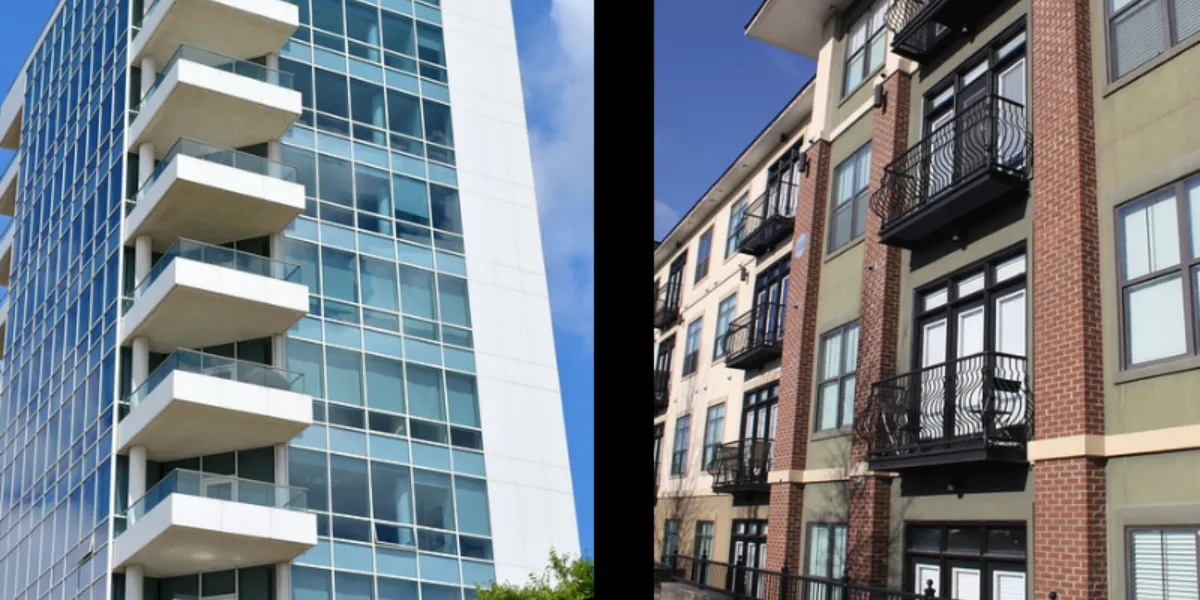Are you looking to move into a new place but find yourself tangled in the web of confusion between condos and apartments? It’s a common dilemma for many. Both condos and apartments offer comfortable living spaces, but there are crucial differences between the two that could impact your lifestyle, finances, and overall satisfaction with your living arrangement. Let’s dive into the intricacies of each to help you make an informed decision. What Is The Difference Between A Condo And An Apartment ?
Understanding the Basics: What is a Condo and What is an Apartment?
First things first, let’s define the terms. A condo, short for condominium, is a type of housing where individuals own their individual unit within a larger complex or building. Conversely, an apartment is a rented living space within a larger building or complex owned by a single entity, typically a landlord or property management company.
Ownership Structure: Condo vs. Apartment

The primary distinction between condos and apartments lies in their ownership structure. Condo owners hold the title to their individual units, giving them the freedom to sell, rent, or renovate their space as they see fit. On the other hand, apartments are owned by a single entity, and tenants rent individual units from the owner or management company.
Legal Differences: Condo Ownership vs. Apartment Tenancy
Legal rights and responsibilities vary significantly between condo owners and apartment tenants. Condo owners are responsible for maintaining and repairing their units, while apartment tenants rely on the landlord or property management for maintenance and repairs.
Maintenance and Responsibilities

When it comes to maintenance, condo living grants more autonomy to owners. They have control over renovations, upgrades, and repairs within their unit. In contrast, apartment dwellers have less control and must rely on the landlord or management company for maintenance issues.
Amenities: What to Expect in Condos vs. Apartments
Condos often boast a range of amenities such as fitness centers, swimming pools, and communal spaces. While some apartments offer similar amenities, they may be shared among all tenants rather than exclusive to individual units.
Customization and Personalization

Condo owners have the freedom to personalize their living space according to their tastes and preferences. However, apartment tenants may face restrictions on customization imposed by the landlord or management company.
Community Dynamics: Condo Associations vs. Apartment Management
Condo owners are typically part of a condo association, which governs the rules and regulations of the complex. Apartment tenants interact with property management for concerns and issues within the building.
Investment Potential: Condos vs. Apartments

Condos are often seen as investments due to their potential for appreciation and rental income. Apartments, while not offering ownership benefits, provide flexibility for those who prefer to rent rather than own.
Flexibility in Living Arrangements
Condos offer flexibility for owners to rent out their units, providing an additional income stream or accommodating changes in lifestyle. Apartment tenants have the flexibility to move out at the end of their lease term without the obligations of selling a property.
Affordability Factors

The cost of living in a condo versus an apartment depends on various factors, including location, amenities, and market demand. Generally, condos may have higher upfront costs due to ownership fees, while apartments offer more predictable rental expenses.
Location Considerations
Both condos and apartments can be found in urban, suburban, and rural areas. Location preferences may influence your decision, as condos tend to be more prevalent in urban centers, offering proximity to amenities and cultural attractions.
Security and Privacy

Security features vary between condos and apartments, with both offering secure access to the building or complex. However, condos may provide additional security measures such as gated entry or surveillance cameras.
Making Your Decision: Condo or Apartment?
Ultimately, the choice between a condo and an apartment boils down to personal preferences, financial considerations, and lifestyle needs. Consider factors such as ownership rights, maintenance responsibilities, amenities, and long-term investment goals before making your decision.
In while condos and apartments share similarities in providing residential living spaces, their differences in ownership structure, maintenance responsibilities, amenities, and investment potential can significantly impact your living experience. By understanding these distinctions, you can make an informed decision that aligns with your needs and preferences.
Click here for more visited Posts!




